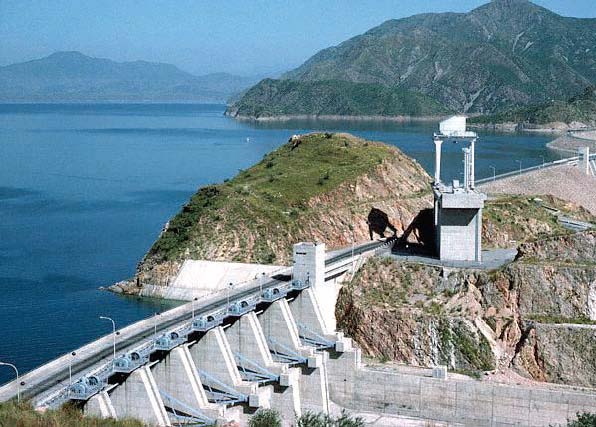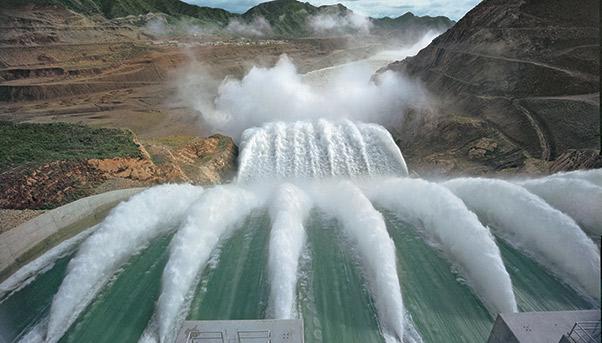Tarbela is situated within the Khyber Pakhtunkhwa province of Pakistan, the Haripur District encompasses 44 union councils, one of which bears the name of Tarbela (Punjabi) or Torbela (Pashto).
Tarbela Dam is the largest fill-type dam in the world. It is situated close to the tiny town of Tarbela in Haripur. It is constructed over the River Indus. In terms of reservoir capacity, it is also the second-largest dam in the world, with a total of 11.62 million acre-feet.
The main project components’ construction began in 1968, and the dam’s inaugural operations began in 1978. The project reached its completion in 1984, costing $1.49 billion. Graana.com brings you all you need to know about Tarbela Dam.
Overview of Tarbela Dam Haripur
| Aspect | Description |
|---|---|
| Location | Tarbela Dam is located on the Indus River. |
| Purpose | It serves multiple purposes, including irrigation, flood control, and power generation. |
| Capacity | The dam has a large reservoir capacity. |
| Power Generation | It houses a hydroelectric power station. |
| Construction | Constructed in phases, with the first phase completed in 1976. |
| Impact | It has had significant contributions to Pakistan’s development. |
| Recreation | Offers recreational activities like boating and fishing. |
| Environmental Role | It plays a crucial role in regulating river flow and supporting the ecosystem. |
Location

Tarbela Dam, one of the biggest dams in Pakistan, is a two-hour drive from Islamabad through the Grand Truck Road and National Highway 5 (N-5). Due to close proximity, it is a very well-liked picnic location among residents of Rawalpindi/Islamabad.
Tarbela Dam is situated simultaneously in Swabi and Haripur districts in Khyber Pakhtunkhwa. The distance to the city of Swabi is only 30 km. Beautiful scenery and atmosphere surround Tarbela Dam with high mountains and lush greenery.
The Swabi-Topi road is the easiest way to reach Tarbela Dam in Khyber Pakhtunkhwa if you are coming from the city of Swabi. The city of Abbottabad in KPK is connected to Tarbela Dam via National Highway-35. There are roughly 100 kilometers separating these two locations.
Monitoring of Tarbela Dam
The Water and Power Development Authority (WAPDA) closely monitors the local tourism industry in the area. Only a certain number of visitors are permitted to the dam at one time. You may need to obtain permission from the WAPDA Public Relations Office (PRO) if you want to travel to Tarbela Dam in KPK. The fact that there are numerous viewing places nearby increases the importance of this dam for Pakistani tourism.
With the aid of these vantage points, visitors have the opportunity to admire the beauty of this reservoir and the nearby natural landscapes from various perspectives. There are well-kept green belts with walkways that enhance the beauty of the area.
Largest Contributor to Hydroelectricity
The Tarbela Dam is the largest dam-producing hydroelectricity in the nation. Hydroelectricity is a major component of Pakistan’s infrastructure for making electric power. WAPDA estimates that the nation can generate 60,000 megawatts of hydroelectric power.
The greatest thing about hydropower is that since it is powered by water, it is a clean and environmentally beneficial energy source.

It is the largest artificial reservoir in the nation. The 1976-built Tarbela Dam is the biggest earth-filled dam in the world, with a height of roughly 470 feet. Tarbela Lake is the name of the body of water that was created by this man-made embankment.
Tarbela Lake, one of the most famous lakes in Pakistan, has a surface area of about 250 square kilometers. This dam serves as a storage facility for water from the tributaries of the Ravi, Sutlej, and Beas rivers. The reservoir can currently hold about 6,800,000 acre-feet of water. Up to 18,406 cubic meters per second of water can be discharged down the reservoir’s main spillway. The dam’s structure includes two spillways that work together to keep the water level in the dam constant.
The power generation capacity of this hydroelectric project in Pakistan can be increased to a maximum of 6,298 megawatts with additional infrastructure development on the reservoir. According to a report on the World Bank’s official website, construction has already begun to put more power plants in the dam’s remaining two tunnels.
These developments are anticipated to increase significantly the largest hydroelectric plant in Pakistan’s overall power generation capacity, bringing it up to 6298 megawatts. This is roughly 20% of the nation’s installed power generating and distribution networks’ combined capacity.
Used for Irrigation Purposes
The primary purpose of this artificial reservoir in Pakistan is to provide water to irrigation systems situated in numerous nearby villages and cities. Up to five substantial tunnels have been constructed on this dam to control the water flow during release.
Only 30% of the water is used to produce hydroelectricity; the other 70% is released over the dam’s spillway and used for agriculture and other purposes. Even so, it is Pakistan’s most extensive hydroelectric facility. The largest hydroelectric station in Pakistan is currently housed in this dam, which has a 4,888-megawatt power-producing capacity.
With the aid of fast-moving water from three of the dam’s five tunnels, the leading powerhouse on the dam is equipped with 14 generators that generate a lot of electricity. Massive water turbines for producing electricity are installed in these three tunnels.
Recreational Activities
Tarbela Dam has a lot of recreational activities for tourists in the area.
Fishing and boating
Tarbela Dam’s enormous reservoir offers fantastic chances for boaters and anglers. To explore the calm waterways and try your hand at fishing for a variety of freshwater fish species, you may either bring your own boat or rent one.
Picnics
Tarbela Dam is a great place for a picnic because of its beautiful surroundings. Many tourists come with their families and friends for a day of outdoor fun in the great outdoors. You can set up a picnic area, eat delectable meals, and unwind in a tranquil setting.
Viewing
The dam provides breathtaking panoramas of the surroundings. You may observe the spectacular structure and the sizable reservoir by strolling along the pathways of the dam. Bring your camera so you can record the expansive views.
Tarbela Dam is a sanctuary for birdwatchers because it is home to a wide variety of bird species. While visiting the area around the dam, you can see various migratory and local birds. Your birdwatching experience can be improved by using binoculars and a bird guidebook.
Hiking and nature walks
Outdoor enthusiasts can explore the gorgeous trails and walking paths near Tarbela Dam. To fully appreciate the surrounding natural splendor, you can go on a leisurely walk or nature walk.
Photography
Tarbela Dam provides many opportunities to take beautiful pictures if you love taking photos. The dam and its surrounds offer a beautiful backdrop for your artistic endeavors, whether you’re interested in taking images of exquisite landscapes or wildlife and birds.
Camping
It is allowed in certain areas close to Tarbela Dam for those seeking an overnight adventure. You can pitch a tent, have a campfire, and spend the night in the serenity of nature while gazing up at the stars.
Remember to follow any safety rules and regulations established by the dam administration. Furthermore, confirming any particular guidelines or limitations about recreational activities at Tarbela Dam before your visit is a good idea.
FAQs
Which is the 1 largest dam in Pakistan?
The Tarbela Dam is the largest dam in Pakistan. However, it is not the largest dam in the world.
Is Tarbela Dam the world’s largest dam?
The Tarbela Dam is located on the Indus River in the Khyber Pakhtunkhwa province of Pakistan. It is an important multipurpose project that serves various purposes, including water storage, irrigation, flood control, and hydropower generation.
On which river Tarbela Dam is located?
The Tarbela Dam is located on the Indus River in Pakistan.
Is Tarbela Dam the 5th largest earth-filled dam in the world?
As for its ranking among the world’s largest earth-filled dams, the Tarbela Dam was once considered the largest earth-filled dam when it was completed in 1976. However, since then, several other earth-filled dams have been constructed worldwide that surpass their size. The Tarbela Dam is not ranked among the top five largest earth-filled dams globally




